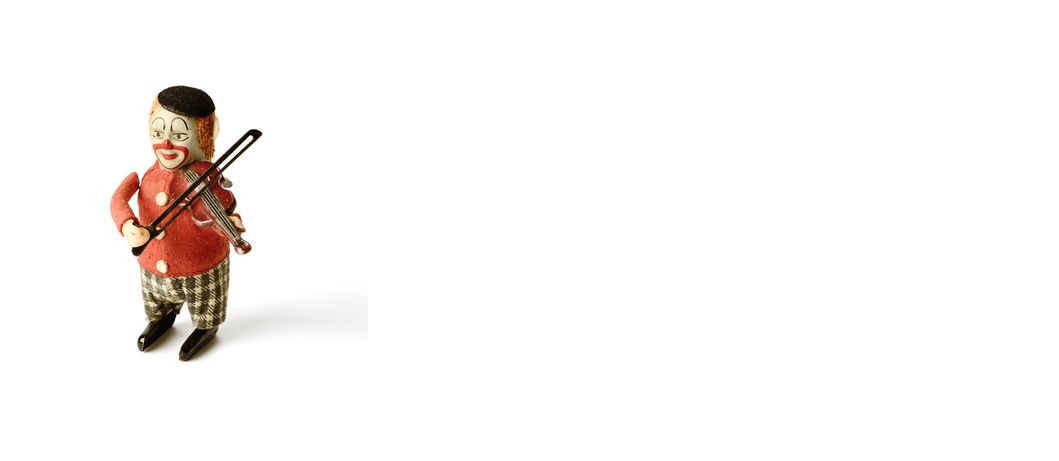
[Translate to EN:]
, 1942
Some clowns still feel sad behind all the painted-on laughter. This one is like that. In 1942, a soldier from occupied Norway comes home on leave. During his transfer in Berlin, there is just enough time to buy a small souvenir for his small daughter: This clown who can dance around and even play the fiddle. At home, everyone is happy because Daddy is home and because the clown turns so joyously. But leave is over soon. And the father must go to the front in Russia. From which he will not return. Ever since then, the clown could not be happy anymore either. The great joy it presented to the little girl once, transformed into even greater sadness. The girl and the clown were bound by this sadness their whole lives. When she had grown up, her children, and later her grand-children, were never allowed to play with it. Finally, the woman who had once been that little girl, gave it to the museum. All she wanted was to know that her pain would be guarded well.
